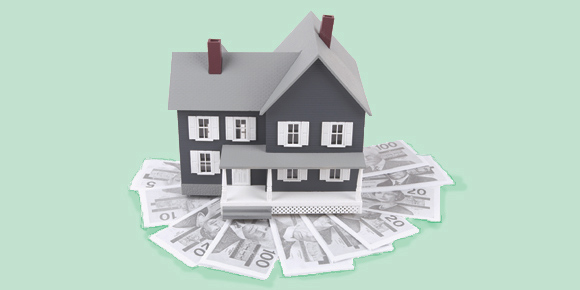Affordable is the word used to emphasize Winnipeg’s housing market in two recent reports.
“More generally, price trends continue to be subdued — in typical fashion for the Winnipeg market — with a very modest year-over-year gain recorded in the single-detached (home),” according to the latest Housing Trends and Affordability Report from RBC Economic Research.
The bank reported that subdued price trends improved the affordability index for the city in 2015’s last quarter, easing by 0.2 percentage points to a reading of 29.9 per cent, which compares favourably to the city’s long-term average of 29.8 per cent.
Since 1985, RBC has been assessing the cost of owning a home based on the percentage of a household’s pre-tax income which is required to meet homeownership costs, including mortgage payments, utilities and property taxes. The higher percentage means the less affordable the house is to purchase.
“When it comes to single-family homes,” said Peter Squire, the market analyst for WinnipegREALTORS®, “Winnipeg looks very affordable in comparison to other cities. The most extreme example of poor affordability (in the RBC report) was Vancouver, which soared well above its average of 68.8 per cent to 109 per cent.
“Winnipeg had one of the lowest condo apartment measures, but alongside were other Western Canadian cities with the exception of Vancouver and Victoria,” he added.
“A reasonably constructive economic backdrop supported home buyer demand in the Winnipeg area,” said Craig Wright, the RBC’s chief economist, “and kept the home resale market generally balanced last year. The number of homes sold rose by one per cent, just short of the all-time high set in 2007.”
Wright said the affordability index improved due to a year-end unsold condo apartment inventory of 25 per cent of the units built in the 12 months of 2015.
The long-term affordability average for condos is 22.7 per cent, while by the end of the year affordability dropped to 22.3 per cent.
The Teranet-National Bank housing price index report concluded that Winnipeg’s affordability remained relatively unchanged, and ranks among the best in 10 major Canadian centres that were included in the report.
“Winnipeg’s affordability improved ever so slight in the percentage of income required to buy a median-priced home,” said Squire. “It also looks far more favourable in contrast to the higher percentage mortgage payment requirement increases recorded for cities such as Vancouver, Victoria and Toronto.
“On other measures, Winnipeg is among the lowest cities in terms of housing affordability,” he added. “It takes 27.7 months to save for a down payment on a home in Winnipeg and 19.7 months for a condominium,” he added.
“The mortgage payment requirement, as a percentage of income for a home in Winnipeg, is 24 per cent, slightly above its long-term average of 23.5 per cent.
“For a condominium, the percentage required is 17 per cent, which is 1.5 per cent less than the long-term average.”
Squire indicated that the report showed a monthly average mortgage payment for a local condominium in Winnipeg was $913, which was less than the monthly average rent of $1,029 for a two-bedroom apartment.”
The Teranet-National Bank house price index measures the time required for a median-income household to save for a cash down payment of five per cent, and the monthly mortgage payment required for a five-year mortgage amortized over 25 years.
At the national level, the RBC report showed affordability overall deteriorated slightly with measures continuing to highlight marked regional differences.
“The significant rise in homeownership costs in Vancouver and Toronto had a dominant influence on Canada-wide affordability measures in the fourth quarter of 2015,” said Wright. “While prices continue to escalate in Vancouver and Toronto markets, there are few signs that housing affordability is problematic elsewhere in Canada.
“Homes in other markets (such as Winnipeg) remain affordable with the situation either improving or remaining fairly stable,” added RBC’s senior economist.



